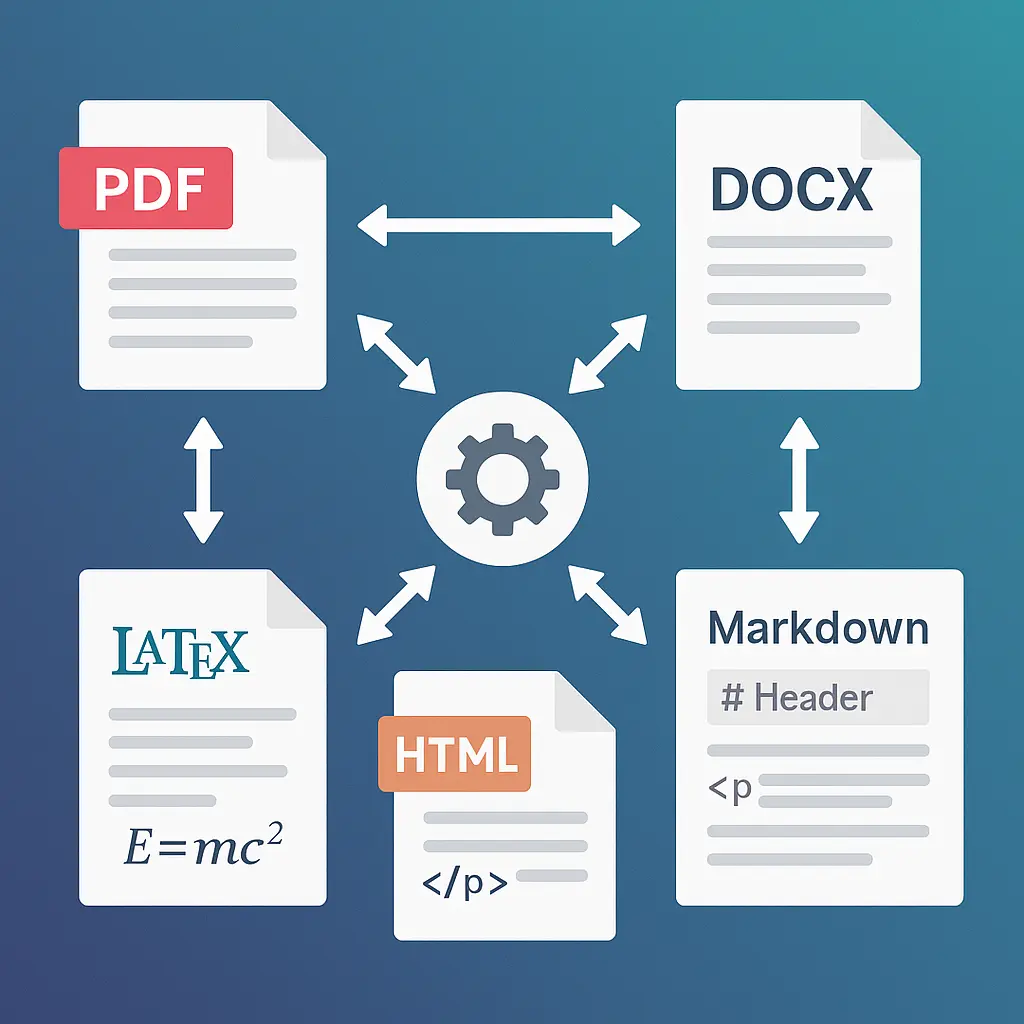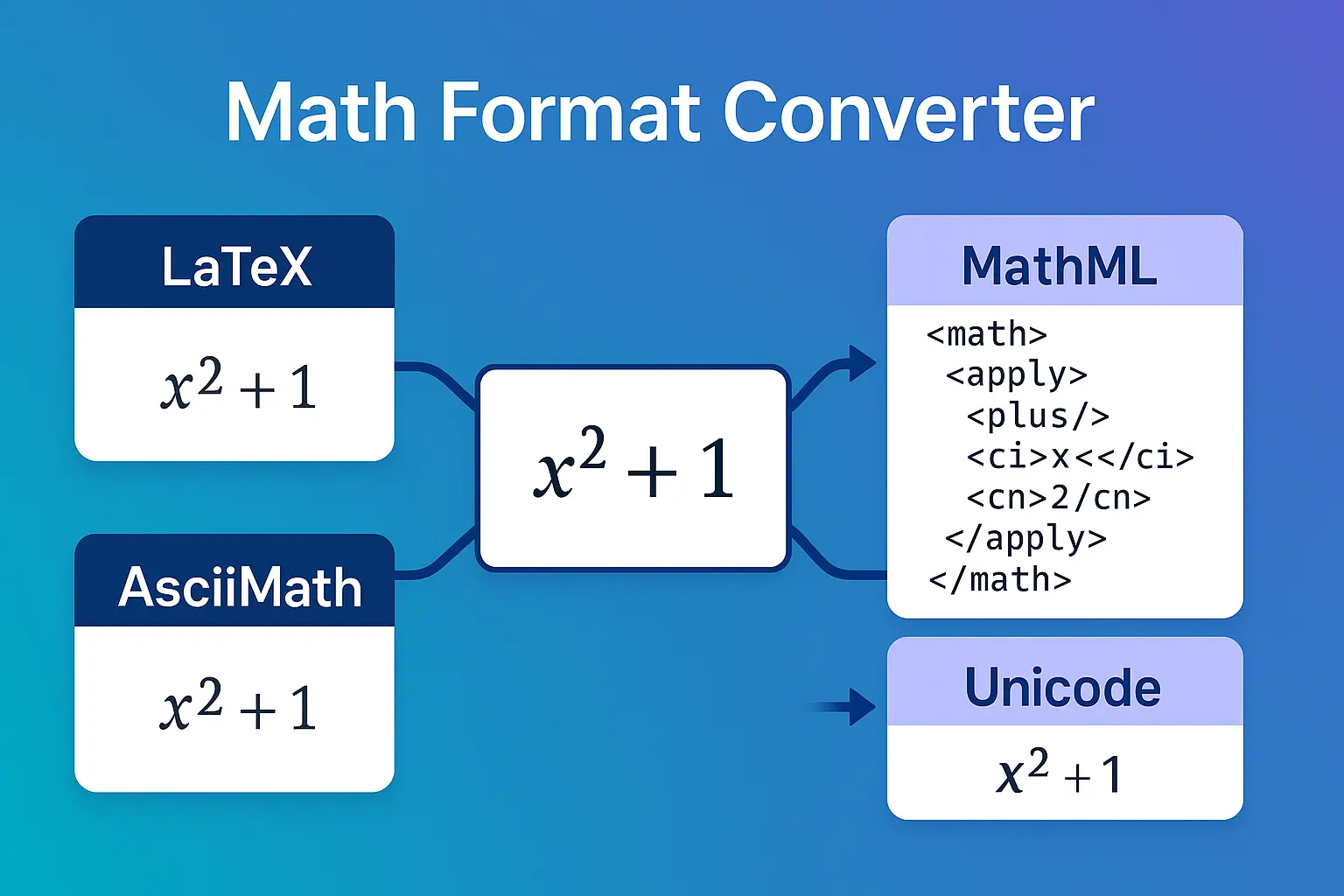It's Sunday night. You need a 20-question math quiz for tomorrow's class. You spend 2 hours writing questions, creating answer choices, typing it all into Google Forms, and setting up the answer key.
Next week, you need another quiz. Another 2 hours.
What if you could create that same quiz in 5 minutes?
This guide shows you how to generate auto-graded math quizzes in Google Forms using MathPad's Problem Generator and one-click Forms export. From problem generation to Google Classroom distribution, we'll cover the complete teacher workflow that saves hours every week.
💡 Pro tip: The key to fast quiz creation is generating problems with pre-built answer keys and distractors. Creating questions is easy—creating good wrong answers (distractors) is time-consuming. Auto-generation solves both.
The Teacher Time Problem (Manual Quiz Creation)
Let's break down the time investment for creating a 20-question math quiz manually:
Step 1: Write questions (30-45 min)
- Think of 20 unique problems
- Ensure difficulty progression
- Avoid repeating same problem types
- Verify all problems are solvable
Step 2: Solve each problem (20-30 min)
- Work out correct answers
- Double-check your math
- One mistake ruins the answer key
Step 3: Create distractors (30-45 min)
- For each question, think of 3-4 plausible wrong answers
- Based on common student errors
- Not too obvious, not too tricky
- This step takes the longest!
Step 4: Type into Google Forms (20-30 min)
- Enter each question
- Format any math notation
- Add all answer choices
- Mark correct answers
Step 5: Set up answer key (10-15 min)
- Configure quiz settings
- Set point values
- Add feedback (optional)
- Assign in Google Classroom
Total time: 110-165 minutes (roughly 2-3 hours)
And you need to do this every week.
Over a school year (36 weeks), that's 72-108 hours spent on quiz creation alone.
📸 Ready to save 100+ hours per year? Install MathPad for Google Forms →
Problem Generator in Forms Sidebar
MathPad brings a complete Problem Set Generator directly into your Google Forms sidebar. No switching apps, no copy-pasting—everything happens inside Forms.
How to access:
- Open Google Forms
- Add-ons → MathPad → Open Sidebar
- Navigate to "Problem Generator" tab
- Full MathPad interface in sidebar
What you can generate:
By Topic:
- Pre-built templates for 100+ math topics
- Algebra: Linear equations, quadratics, polynomials
- Geometry: Area, volume, triangles, circles
- Trigonometry: Unit circle, identities, solving
- Calculus: Derivatives, integrals, limits
- Statistics: Probability, distributions, hypothesis tests
By Custom Topic:
- Describe any math concept: "chain rule derivatives"
- AI generates appropriate problems
- Works for specialized topics not in templates
By Materials:
- Upload your textbook page or worksheet
- Generate similar problems based on examples
- Match your curriculum exactly
Problem Metadata (Automatically Included):
Each generated problem includes:
- Full solution with step-by-step work
- Multiple choice options (auto-generated)
- Smart distractors based on common errors
- Hints for struggling students
- Difficulty level (Easy/Medium/Hard/Expert)
- Time estimate (average student completion time)
- Topic tags and standards alignment
- Cognitive level (Bloom's taxonomy)
Why this matters:
Creating the problem is 20% of the work. Creating quality answer choices and solutions is 80%. Auto-generation handles all of it.
One-Click Export to Google Forms
Once you've generated problems, exporting to Google Forms is literally one click.
The workflow:
- Generate problem set: Select topic, difficulty, quantity (1-20 problems)
- Review problems: Preview questions, regenerate any you don't like
- Click "Export to Forms": One button press
- Auto-population happens:
- Questions added to form
- Multiple choice options populated
- Correct answers marked
- Point values assigned
- Answer key configured
- Form is ready: Preview, adjust if needed, assign to students
Export options:
Question format:
- Multiple choice (with auto-distractors)
- Short answer (for showing work)
- Multiple choice + short answer (hybrid)
Answer key placement:
- Include answer key (students see after submission)
- Teacher only (hidden from students)
- Separate form (for practice vs assessment)
Formatting:
- Equations as images (renders perfectly)
- Point values per question (1-10 points)
- Section breaks (organize by topic/difficulty)
- Instructions and descriptions
Form settings:
- Quiz mode enabled (auto-grading on)
- Release grades immediately or after review
- Allow response editing or lock after submission
- Collect email addresses
Time savings:
- Manual process: 2-3 hours
- With MathPad: 5 minutes
That's 95% time reduction.
Auto-Generated MCQ Distractors (Smart Wrong Answers)
The hardest part of creating multiple choice quizzes is writing good wrong answers (distractors). They need to be plausible (not obviously wrong) but distinctly incorrect.
What makes a good distractor:
- Based on common errors: "Forgot to distribute negative" or "Used wrong formula"
- Plausible at first glance: Looks reasonable until you check carefully
- Not obviously wrong: Not "negative area" or "infinity"
- Pedagogically useful: Reveals specific misconceptions when chosen
How MathPad generates distractors:
Example problem: Solve $2x + 6 = 14$
Correct answer: $x = 4$
Auto-generated distractors:
- $x = 8$ (forgot to divide after subtracting: $2x = 8$)
- $x = 10$ (didn't subtract 6 first: $14/2 + 6 = 10$)
- $x = 20$ (added instead of subtracted: $14 + 6 = 20$)
Each distractor represents a real mistake students make. When a student chooses $x = 8$, you know exactly what misconception to address.
Distractor patterns by problem type:
Algebra (solving equations):
- Order of operations errors
- Sign mistakes
- Incomplete simplification
- Wrong operation applied
Geometry (area/volume):
- Used wrong formula
- Forgot to square/cube
- Mixed up radius vs diameter
- Unit conversion errors
Calculus (derivatives):
- Forgot chain rule
- Power rule error
- Sign error
- Constant term mistakes
Statistics (probability):
- Confused P(A or B) with P(A and B)
- Forgot complement rule
- Independence assumption errors
- Conditional probability mistakes
Customizing distractors:
While auto-generation works great, you can:
- Regenerate distractors for a specific question
- Manually edit specific wrong answers
- Add your own based on class-specific errors
- Remove distractors that are too similar
💡 Pro tip: Review auto-generated distractors for the first few quizzes. After seeing MathPad's patterns, you'll trust the auto-generation and stop checking.
Answer Key Auto-Configuration
When you export to Google Forms, the answer key is automatically configured. No manual marking of correct answers, no point assignment—it's all done.
What gets configured:
1. Correct answers marked:
- Each multiple choice question has correct answer pre-selected
- Short answer questions have answer key provided (for manual grading)
2. Point values assigned:
- Default: 1 point per question
- Custom: Set different point values (easy=1pt, hard=3pts)
- Automatic weighting by difficulty level
3. Answer feedback (optional):
- Show correct answer after submission
- Include worked solution
- Provide hints for similar problems
4. Quiz settings enabled:
- Quiz mode turned on (required for auto-grading)
- Grade release configured (immediate or after review)
- Response validation (prevent blank submissions)
Answer key formats:
For students (after submission):
- Correct/incorrect markers per question
- Overall score (e.g., "16/20")
- Option to see correct answers
- Optional: Full worked solutions
For teachers (in Forms responses):
- Individual student results
- Class statistics (average, median, distribution)
- Per-question analytics (which problems were hardest?)
- Export to Sheets for gradebook import
Editing the answer key:
While auto-configuration is accurate, you can:
- Adjust point values
- Change correct answer (if you disagree with CAS solution)
- Add custom feedback
- Enable/disable solution visibility
Google Classroom Integration Workflow
The complete workflow from problem generation to student completion:
Step 1: Create Quiz (5 min)
- Open Google Forms
- MathPad sidebar → Problem Generator
- Select topic and difficulty
- Generate 20 problems
- One-click export to Forms
- Preview and make any adjustments
Step 2: Assign in Google Classroom (2 min)
- Go to Google Classroom
- Create Assignment
- Attach your Forms quiz
- Set due date and point value
- Assign to class
Step 3: Students Complete Quiz
- Students receive notification in Classroom
- Click link to open Forms quiz
- Complete and submit
- Immediate feedback (if enabled)
Step 4: Review Results (5-10 min)
- Forms automatically grades multiple choice
- View class statistics in Forms responses
- Identify problem areas (questions with low scores)
- Grade short answer questions (if included)
- Export to Sheets for gradebook
Step 5: Follow-up Instruction
- Problem Generator: Create similar problems for remediation
- SnapSolve: Create video solutions for hardest problems
- Assign practice problems on weak topics
Total teacher time: 12-17 minutes (vs 2-3 hours manually)
✨ Try the complete workflow Install MathPad for Forms →
Time Comparison: 2 Hours → 5 Minutes
Creating a 20-question calculus quiz:
Manual Process (Old Way)
Monday evening:
- 7:00 PM: Start writing questions
- 7:45 PM: Finish question 10 (halfway!)
- 8:30 PM: All 20 questions written
- 8:50 PM: Worked out all solutions
- 9:30 PM: Created distractors for all questions
- 9:50 PM: Typed everything into Forms
- 10:05 PM: Set up answer key
- 10:10 PM: Finally done!
Total: 3 hours 10 minutes Result: Exhausted, late evening wasted
With MathPad (New Way)
Monday evening:
- 7:00 PM: Open Forms, launch MathPad sidebar
- 7:01 PM: Problem Generator → "Calculus derivatives" → Medium difficulty → 20 questions → Generate
- 7:02 PM: Quick review, regenerate 2 problems I don't love
- 7:03 PM: Click "Export to Forms"
- 7:04 PM: Auto-populated with questions, answers, answer key
- 7:05 PM: Quick preview, looks good
- 7:06 PM: Assign in Google Classroom
Total: 6 minutes Result: Rest of evening free
Time saved: 184 minutes (3 hours)
Yearly time savings:
- Quizzes per year: ~36 (weekly)
- Time saved per quiz: 3 hours
- Total saved: 108 hours per year
That's 13.5 full workdays back in your life.
Example: Creating a Calculus Quiz
Let's walk through creating an actual quiz step-by-step.
Scenario: AP Calculus class, unit test on derivatives
Goal: 25-question quiz covering:
- Power rule (5 questions)
- Product rule (5 questions)
- Quotient rule (5 questions)
- Chain rule (5 questions)
- Mixed problems (5 questions)
Process:
Step 1: Generate Power Rule Problems (1 min)
- Topic: "Derivatives using power rule"
- Difficulty: Medium
- Quantity: 5
- Generate → Review → Accept
Step 2: Generate Product Rule Problems (1 min)
- Topic: "Derivatives using product rule"
- Difficulty: Medium to Hard
- Quantity: 5
- Generate → Review → Regenerate #3 (too easy) → Accept
Step 3: Generate Quotient Rule Problems (1 min)
- Topic: "Derivatives using quotient rule"
- Difficulty: Hard
- Quantity: 5
- Generate → Review → Accept
Step 4: Generate Chain Rule Problems (1 min)
- Topic: "Derivatives using chain rule"
- Difficulty: Hard
- Quantity: 5
- Generate → Review → Accept
Step 5: Generate Mixed Problems (1 min)
- Topic: "Mixed derivative problems requiring multiple rules"
- Difficulty: Expert
- Quantity: 5
- Generate → Review → Accept
Step 6: Export to Forms (30 seconds)
- Select all 25 problems
- Click "Export to Forms"
- Choose settings:
- ✓ Include distractors (4 choices per question)
- ✓ Auto-configure answer key
- ✓ Show solutions after submission
- Point value: 4 points each (100 points total)
- ✓ Group by topic (5 sections)
Step 7: Final Review (1 min)
- Preview form
- Check formatting
- Verify answer key
- Looks good!
Step 8: Assign (30 seconds)
- Google Classroom → Create Assignment
- Attach Forms quiz
- Due date: Friday
- Assign to AP Calc period 3
Total time: 6 minutes
What students see:
Section 1: Power Rule (20 points) 5 multiple choice questions with worked solutions
Section 2: Product Rule (20 points) 5 multiple choice questions with worked solutions
Section 3: Quotient Rule (20 points) 5 multiple choice questions with worked solutions
Section 4: Chain Rule (20 points) 5 multiple choice questions with worked solutions
Section 5: Mixed Problems (20 points) 5 multiple choice questions with worked solutions
After submission:
- Instant score (auto-graded)
- Correct/incorrect per question
- Option to view solutions
- Feedback and remediation suggestions
Best Practices for Auto-Graded Math Quizzes
1. Mix difficulty levels
Don't make all problems the same difficulty:
- Easy (30%): Build confidence, quick wins
- Medium (50%): Standard mastery check
- Hard (15%): Challenge problems
- Expert (5%): Differentiation for advanced students
2. Include "show your work" questions
While multiple choice is auto-graded, consider:
- 80% multiple choice (auto-graded)
- 20% short answer (manual grading for partial credit)
This catches students who guess correctly without understanding.
3. Use section breaks
Organize quizzes by topic:
- Section 1: Basic problems
- Section 2: Application problems
- Section 3: Challenge problems
Helps students mentally organize and paces the quiz.
4. Enable "Show correct answers after submission"
Educational benefit:
- Students learn from mistakes immediately
- Reinforces correct methods
- Provides worked solutions
Concern about cheating:
- Only show after due date
- Or randomize question order for future quizzes
- Problem Generator can create unlimited variations
5. Review problem analytics
After grading, look at per-question statistics:
- Which problems had lowest scores?
- Common wrong answers chosen?
- Time spent per question?
This reveals class-wide misconceptions to address.
6. Create problem variations for makeup quizzes
Student missed quiz? Generate new quiz:
- Same topics
- Same difficulty
- Different specific problems
Takes 30 seconds, prevents copying.
7. Generate practice quizzes
Before the real quiz:
- Generate practice quiz (ungraded)
- Same format and difficulty
- Students get familiar with question types
- Reduces test anxiety
Frequently Asked Questions
Can Google Forms auto-grade math problems?
Yes, Google Forms can auto-grade multiple choice math problems. With MathPad, you can generate math questions with auto-generated answer choices and pre-configured answer keys, making the entire process automatic.
How do I create a math quiz in Google Forms?
Open Google Forms, install MathPad addon, use Problem Generator to create questions with smart distractors, then one-click export to populate your form with auto-graded questions and answer key.
What are distractors in multiple choice questions?
Distractors are the wrong answer choices in multiple choice questions. Good distractors are based on common student mistakes, making the question more meaningful. MathPad auto-generates distractors based on typical errors.
How long does it take to create a 20-question math quiz with MathPad?
Approximately 5-6 minutes including problem generation, review, and export. Manual creation typically takes 2-3 hours.
Can I use MathPad quizzes with Google Classroom?
Yes, after creating your Forms quiz, assign it through Google Classroom as you would any other assignment. Results sync automatically, and you can export scores to your gradebook.
How accurate are the auto-generated answer keys?
MathPad uses CAS (Computer Algebra System) verification, ensuring 100% mathematical accuracy. Every problem is solved symbolically before being added to your quiz.
Can I edit problems after auto-generation?
Yes, you can regenerate individual problems, edit questions, adjust answer choices, modify distractors, or change point values before exporting to Forms.
Does this work for all math levels?
Yes, Problem Generator supports all levels from basic arithmetic through calculus, statistics, linear algebra, and differential equations. Works for middle school through college.
Can I create quizzes from my textbook problems?
Yes, upload a photo of your textbook page, and MathPad will generate similar problems matching your curriculum. This ensures alignment with what students are learning.
How do I prevent students from sharing answers?
Use Forms' "Shuffle question order" setting, or generate multiple quiz variations using Problem Generator (takes 30 seconds per variation). Each student can get different problems on the same topics.
Can I include worked solutions in the quiz?
Yes, you can configure answer feedback to include full step-by-step solutions. Show these after submission so students learn from mistakes.
Is there a limit to how many quizzes I can create?
Free tier: 3 quiz exports per day. Premium: Unlimited quiz generation and export. School licenses available for entire departments.
Related Topics
Continue learning:
- Math Equations in Google Docs → – Insert equations in documents
- Google Slides Math Presentations → – Create presentation quizzes
- Complete Workspace Guide → – Full ecosystem integration
- Math Problem Generator → – Deep dive into problem generation
- Math Homework Help → – Complete student workflow
External resources:
Conclusion
Creating math quizzes manually is time-consuming: 2-3 hours per quiz, 36 quizzes per year, 100+ hours of work. With MathPad's Problem Generator and one-click Forms export, you can create the same quizzes in 5 minutes.
The workflow:
- Generate problems in Forms sidebar (2 min)
- One-click export with auto-configuration (30 sec)
- Quick review and adjust (1-2 min)
- Assign in Google Classroom (30 sec)
What you get:
- Professional math questions
- Smart distractors based on common errors
- CAS-verified answer keys
- Auto-grading enabled
- Worked solutions included
Time saved: 95%
Over a school year, that's 100+ hours back in your life—time for better lesson planning, individual student help, or actually having evenings free.
Ready to save 2+ hours per quiz? Install MathPad for Google Forms and create your first auto-graded quiz in 5 minutes.
Have questions about creating math quizzes? Contact our team or try MathPad free.



